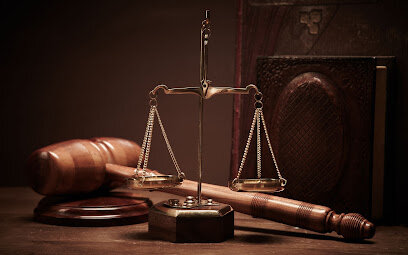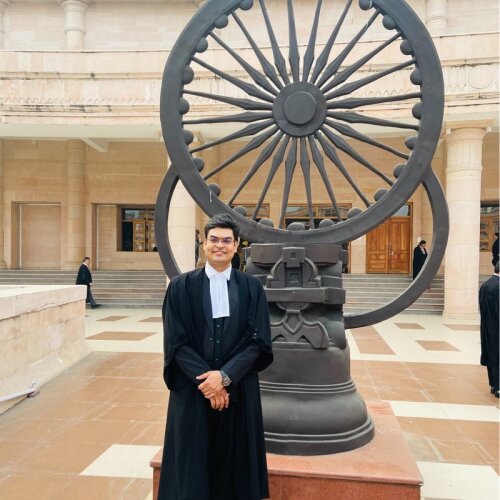Best Discrimination Lawyers in Lucknow
Share your needs with us, get contacted by law firms.
Free. Takes 2 min.
List of the best lawyers in Lucknow, India
About Discrimination Law in Lucknow, India
Discrimination law in Lucknow, India, is designed to protect individuals from unfair treatment based on specific characteristics such as race, religion, gender, caste, disability, or other attributes. India has a comprehensive legal framework aimed at promoting equality and prohibiting discrimination. In Lucknow, as in the rest of India, these laws are enforced to ensure that every citizen has equal rights and opportunities. Various legislative acts such as The Constitution of India, the Scheduled Castes and the Scheduled Tribes (Prevention of Atrocities) Act, and the Rights of Persons with Disabilities Act play a significant role in safeguarding these rights.
Why You May Need a Lawyer
Seeking legal assistance may become necessary in various situations related to discrimination where an individual's rights are compromised. Common reasons to consult a lawyer can include facing discrimination at the workplace, denial of services in public or private establishments, unequal treatment in educational institutions, or harassment based on protected characteristics. A lawyer specializing in discrimination law can provide guidance, representation, and help navigate the legal processes to ensure justice and equality.
Local Laws Overview
Several key aspects of local and national laws pertain to discrimination in Lucknow, India. The Equal Remuneration Act ensures gender pay parity; the Protection of Civil Rights Act prohibits the practice of untouchability. The Indian Penal Code includes provisions against discriminatory practices. Recent advancements in legal policies focus on broader equality issues such as workplace harassment and transgender rights. Local legal measures may also be in place, offering additional protection and recourse for citizens experiencing discrimination.
Frequently Asked Questions
What constitutes discrimination under Indian law?
Discrimination involves unjust or prejudicial treatment of individuals based on personal characteristics like caste, religion, gender, or disability.
How can I prove discrimination occurred?
Proof can include eyewitness accounts, documented communications, and records showing differential treatment or policies.
What legal protections exist for discrimination in employment?
Laws such as the Equal Remuneration Act and the Sexual Harassment of Women at Workplace Act provide protection against workplace discrimination.
What should I do if I encounter discrimination?
It is advised to document the incident, gather evidence, and seek the assistance of a lawyer specialized in discrimination law.
Can an entity be penalized for discriminatory practices?
Yes, perpetrators of discrimination may face legal penalties, including fines and imprisonment, as well as compensatory damages to victims.
Are there specific laws for caste-based discrimination?
The Scheduled Castes and the Scheduled Tribes (Prevention of Atrocities) Act specifically addresses caste-based discrimination and its prevention.
How do I file a complaint about discrimination?
Complaints may be filed with relevant authorities such as the police, human rights commissions, or within workplace grievance structures.
Can I represent myself in a discrimination case?
While it is possible to represent oneself, it is often beneficial to have legal counsel to navigate the complexities of the law effectively.
What is the role of the National Human Rights Commission?
The National Human Rights Commission investigates human rights violations, including discrimination, and suggests recommendations or legal actions.
What recourse is available for discrimination in educational institutions?
Victims of discrimination in educational settings can seek redress through institutional complaint mechanisms or legal action under the Right to Education Act.
Additional Resources
Consider reaching out to organisations like the National Human Rights Commission, Lucknow District Legal Services Authority, and non-profits focusing on equality and human rights. Many offer consultations, provide information on rights, and assist with filing complaints.
Next Steps
If you need legal assistance in a discrimination matter, start by contacting a lawyer experienced in this field. Gather all relevant documentation and evidence surrounding your case. You can also reach out to local legal aid services if you require financial assistance. Initial consultations can provide direction on the viability of your case and potential steps for resolution.
Lawzana helps you find the best lawyers and law firms in Lucknow through a curated and pre-screened list of qualified legal professionals. Our platform offers rankings and detailed profiles of attorneys and law firms, allowing you to compare based on practice areas, including Discrimination, experience, and client feedback.
Each profile includes a description of the firm's areas of practice, client reviews, team members and partners, year of establishment, spoken languages, office locations, contact information, social media presence, and any published articles or resources. Most firms on our platform speak English and are experienced in both local and international legal matters.
Get a quote from top-rated law firms in Lucknow, India — quickly, securely, and without unnecessary hassle.
Disclaimer:
The information provided on this page is for general informational purposes only and does not constitute legal advice. While we strive to ensure the accuracy and relevance of the content, legal information may change over time, and interpretations of the law can vary. You should always consult with a qualified legal professional for advice specific to your situation.
We disclaim all liability for actions taken or not taken based on the content of this page. If you believe any information is incorrect or outdated, please contact us, and we will review and update it where appropriate.














